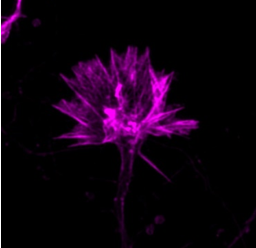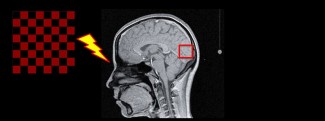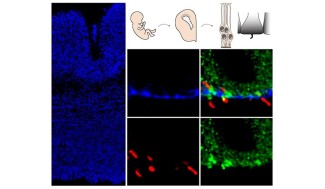Huntington’s disease has a triad of symptoms: motor, psychiatric and cognitive. These symptoms and their intensity and presentation vary widely between patients. The clinical signs of the disease generally appear between the ages of 30 and 50, but the disease can appear at any age from childhood to much later in life. Onset is before the age of 20 in 10% of cases, for example. Motor symptoms are the most visible, and often the first to be identified. However, cognitive or psychiatric problems may already be present. In the early onset forms of the disease (before the age of 20), the disease mainly presents as behavioral and learning disorders.
On average, Huntington’s disease progresses over a period of 13 to 15 years after the onset of clinical symptoms, although this figure varies widely between patients. It may involve severe dementia and an inability to walk and swallow, and culminates in the patient’s death.
Diagnosing Huntington’s disease
A clinical diagnosis of Huntington’s disease is based on the patient’s specific symptoms, such as abnormal movements or behavioral problems. The diagnosis takes into account any family history that could influence the diagnosis. Brain imaging tests may rule out other conditions with similar symptoms.
A clinical diagnosis of the disease can be confirmed by a genetic test that identifies the expansion of the huntingtin gene, carried out after genetic counseling and with informed consent to disseminate the results during a genetic consultation.
This molecular diagnosis is carried out using DNA from blood cells and involves quantifying the number of repetitions of the CAG sequence.
Because the disease is hereditary, genetic testing before symptom onset can be requested by the family members of a person with Huntington’s disease. This genetic test enables relatives to find out whether they are carrying the disease, and whether they will one day develop it.
Currently, the number of people in France carrying the huntingtin gene mutation, but who are not yet showing any symptoms, is estimated to be 12,000. This test is designed to enable the person to make a decision on whether and when to get tested. The test is carried out as part of a multidisciplinary consultation involving a geneticist, neurologist, psychologist, genetic counselor and nurse.
Once the gene and/or the mutation responsible for Huntington’s disease are known, the family can access genetic testing as well as specialist advice about how the disease is transmitted within their family. It is now 30 years since we first set up a consultation at Pitié-Salpêtrière hospital, with Josué Feingold and Marcela Gargiulo, which focuses on people at known risk of a disease. They know that their parents and grandparents were affected and they know they could be at risk of developing the disease one day. When the genetic variation responsible for the disease is detected, they then have a choice: whether or not to find out before the disease begins.
Sometimes prenatal diagnosis is requested. This is done in pregnancy to detect the presence of a CAG expansion in a fetus before the end of the first trimester. If the results detect this expansion, there may be a medical termination of the pregnancy. Similarly, a pre-implantation diagnosis may be performed. This involves testing for the CAG expansion in two- or three-day-old embryos developed from in vitro fertilization (with all the inherent limitations of this technique (20% success rate)). The embryos can then be implanted.
The Pitié-Salpêtrière University Hospital genetics department specializes in hereditary diseases and offers consultations as early as the prenatal period up to adulthood, diagnosis, monitoring and genetic counseling (including pre-symptomatic and prenatal diagnosis) for patients and/or their relatives.
Identifying the factors that influence the age of onset of symptoms of the disease and its progression is a central part of Paris Brain Institute’s research.
Alexandra Durr’s team at Paris Brain Institute has conducted and participated in several studies that have identified the genetic variants that influence the progression of Huntington’s disease.





